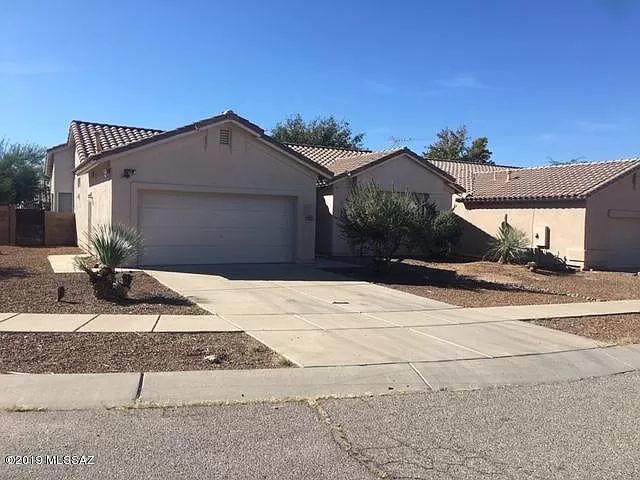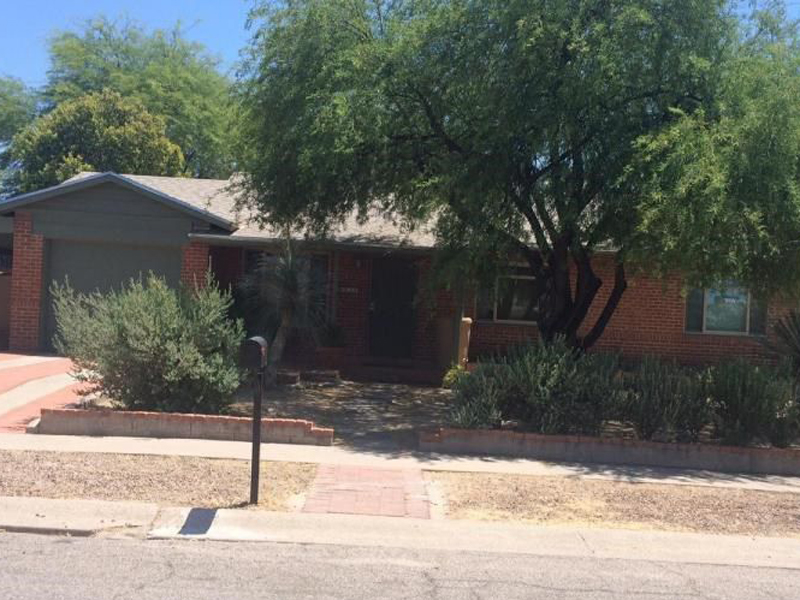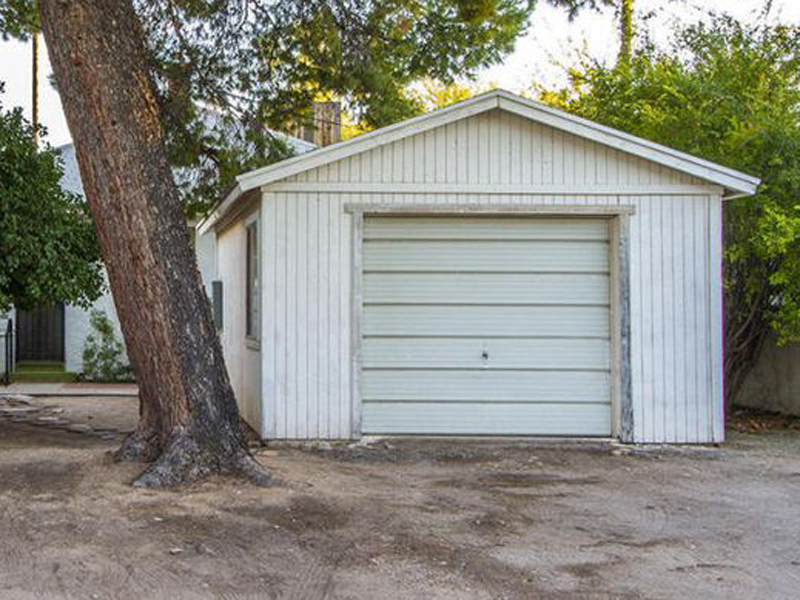Is Your Garage Door Stuck? Below's What to Do Very first
When your garage door won't open up, start with these important safety checks before attempting any kind of repair services. First, make sure no person is standing near the door and that cars are free from the opening. Search for noticeable indications of damages like broken panels, curved tracks, or hanging cables. If you see a snapped spring or significantly harmed parts, quit immediately and call an expert—-- these repair services call for specific tools and know-how to manage safely.

Examine These 6 Things Before Calling an Expert
Before assuming you require expensive repair services, go through this quick analysis list that resolves most garage door troubles:
-
Power source: Validate the opener is plugged in and the outlet is working
-
Remote batteries: Change dead batteries in your push-button control
-
Hand-operated lock: Inspect if someone inadvertently engaged the hands-on lock
-
Obstructions: Search for debris obstructing the door's path or sensors
-
Emergency launch: Guarantee the red emergency situation cord hasn't been drawn
-
Breaker: Verify the garage circuit hasn't stumbled
These simple checks settle approximately 70% of garage door problems without requiring expert intervention.
10 Typical Factors Your Garage Door Will Not Open Up
Understanding why your garage door opener isn't working assists you select the ideal option. Right here are the most frequent reasons home owners encounter:
Dead remote batteries stand for the simplest solution—-- when batteries die, the remote can't send signals to the opener. Power interruptions or stumbled breakers cut power to the electric motor. Broken springtimes stop the door from lifting effectively and require instant expert focus. Sensing unit imbalance reasons safety systems to obstruct door operation. Track blockages quit rollers from moving efficiently. Motor overload triggers automated shutoffs when the opener detects resistance. Restriction switch problems puzzle the opener about door placement. Wire damage disrupts the training system. Weather-related problems influence door movement during extreme temperatures. Component wear from age gradually reduces system efficiency.
Trouble # 1: Dead Remote Control Batteries
When your wall surface button works yet your remote does not, dead batteries are typically the culprit. Most garage door remotes make use of either 3-volt lithium or 12-volt alkaline batteries. Remove the back cover of your remote and check the battery type. Change with fresh batteries and check the remote. If it still doesn't work, you may require to reprogram it to your opener. Consult your opener's handbook for certain reprogramming guidelines, as the process varies by maker.
Issue # 2: Power Supply Issues
Garage door power problems usually come from loose connections or stumbled circuits. Inspect that the opener is securely connected into its outlet—-- vibration can loosen links with time. Test the electrical outlet with an additional device to confirm it's functioning. Analyze your home's breaker box for tripped circuits, particularly if you've experienced tornados or power changes. GFCI electrical outlets may have tripped and need resetting. If the opener has power yet won't react, the issue likely lies elsewhere in the system.
Problem # 3: Broken or Damaged Springs
Damaged garage door springtimes are amongst one of the most unsafe components to manage. If you listen to a loud bang from your garage or observe the door feels extremely heavy when trying to raise manually, a spring has likely broken. Torsion springtimes run horizontally above the door, while extension springs sit on either side. Never try springtime repair work on your own—-- these parts store tremendous stress that can trigger severe injury or death. Professional substitute typically sets you back $150-$300 however guarantees your safety.
Problem # 4: Obstructed Security Sensing Units
Modern garage doors feature safety and security sensors that protect against closure when items are discovered. These sensors can quit the door from opening if they're unclean, misaligned, or blocked by particles. Clean sensor lenses with a soft towel and ensure absolutely nothing obstructs the unseen light beam in between them. Check that sensors are properly lined up—-- the majority of have sign lights that show link standing. Sensor troubles commonly solve with simple cleaning and change.
Issue # 5: Track Obstructions or Damages
Garage door tracks overview rollers as the door moves up and down. Dust, particles, old grease, or small things can jam the system. Examine tracks aesthetically and remove any type of obstructions with a brush or fabric. Search for damages, flexes, or warping that could hamper smooth procedure. Minor track adjustments are feasible for convenient property owners, yet significant damages calls for specialist fixing to prevent additional problems or security threats.
Issue # 6: Garage Door Opener Motor Issues
When the garage door motor runs however the door does not relocate, numerous issues could be liable. The motor may be overloaded and shutting down as a safety measure. Equipment wear, particularly in older units, can prevent proper operation. Chain or belt drive troubles impact power transmission. If you hear uncommon grinding, clicking, or humming sounds, stop utilizing the opener instantly. Electric motor repair work typically set you back more than replacement, especially for systems over 10 years old.
Detailed DIY Troubleshooting Guide
Follow this systematic approach to garage door fixing while prioritizing security throughout the process:
Step 1: Test the wall surface button first. If it functions yet the remote does not, concentrate on remote issues. If neither works, inspect power supply.
Step 2: Analyze the hands-on release cord. If it's been pulled, the opener is disengaged from the door. Push the trolley back to reconnect.
Step 3: Manually check the door by disengaging the opener and attempting to lift the door by hand. It should move efficiently and stay in location when half-open.
Step 4: Check noticeable elements for damages, paying special attention to springtimes, cable televisions, and tracks.
Tip 5: Inspect all security features including sensing units, limit switches, and auto-reverse functions.
Action 6: Test various controls (remote, wall surface button, keypad) to isolate the issue source.
Constantly wear safety glasses and job gloves when executing examinations, and never effort repairs on springs or high-tension parts.
When to Call a Specialist vs. DIY Solutions

Recognizing when to call a garage door specialist versus trying DIY fixings safeguards both your safety and your wallet. Manage these concerns yourself: dead remote batteries, power supply troubles, minor track cleansing, sensor cleansing and alignment, and standard lubrication.
Never ever try these fixings yourself: springtime replacement or adjustment, wire fixings, major track realignment, electrical circuitry issues, opener electric motor substitute, or any kind of repair work entailing high-tension parts. Professional service technicians have specialized tools, training, and insurance to manage unsafe repair work securely.
Consider fixing costs versus replacement costs, particularly for doors over 15 years old. Modern garage doors offer better security features, power performance, and reliability than older models.
Emergency Garage Door Solutions
When you're stuck with a garage door that won't open up and need immediate access, comply with these emergency treatments:
Guidebook Procedure: Pull the red emergency situation launch cable to disengage the opener. This permits hand-operated operation however requires correct method to avoid injury. Raise the door gradually and evenly, making use of leg muscle mass rather than your back. Many domestic doors evaluate 100-150 extra pounds, making them workable for the majority of grownups.
Short-term Repairs: If the door opens manually yet will not stay up, prop it open with sawhorses or clamps—-- never ever utilize your body or automobiles as assistances. For doors that will not shut entirely, make sure the opening is protected if you need to leave.
Emergency situation Service: Numerous garage door business supply 24/7 emergency solution for scenarios including security problems, entraped lorries, or total system failings. While much more costly than routine service telephone calls, emergency situation repair work provide prompt solutions when needed most.
Security Caution: What NOT to Do
Garage door security requires recognizing hazardous fixings that need to never be tried by property owners:
Never ever attempt to fix springs—-- they save enough power to create deadly injuries when they snap or are poorly dealt with. Don't compel a stuck door—-- this can damage the opener, tracks, or door panels, creating much more pricey problems. Prevent bypassing safety functions—-- sensors and auto-reverse mechanisms avoid serious injuries and residential property damages.
Do not overlook strange noises—-- grinding, scuffing, or banging audios show issues that worsen in time. Never ever use the door if cable televisions are frayed or broken—-- the door could drop unexpectedly. Do not attempt electrical repairs unless you're a qualified electrical expert—-- garage door openers make use of both 120V household present and low-voltage control circuits.

Preventative Upkeep to Prevent Future Troubles
Routine garage door upkeep avoids most usual troubles and extends system life-span significantly:
Monthly Tasks: Visual inspection of all elements, checking auto-reverse security attributes, examining and tightening equipment, and cleansing tracks and sensors.
Quarterly Jobs: Lubing all moving get rid of ideal garage door lubricant, testing guidebook procedure, and inspecting weather condition sealing.
Annual Tasks: Professional examination and tune-up, springtime adjustment if needed, and opener upkeep consisting of belt or chain modification.
Seasonal Jobs: Preparing for climate extremes, inspecting insulation, and readjusting opener setups for temperature adjustments.
Constant upkeep prices far less than emergency repairs and guarantees reliable operation year-round.
Garage Door Will Not Open FAQs
Why will not my garage door open with the remote but works with the wall surface button?
This typically shows dead remote batteries, signal disturbance, or the demand to reprogram the remote. Check batteries first, then consult your opener guidebook for reprogramming guidelines.
Can I by hand open my garage door if the power is out?
Yes, pull the red emergency release cable to disengage the opener, then raise the door manually. Be planned for the door's full weight and lift with correct technique to prevent injury.
Just how do I recognize if my garage door springtime is damaged?
Signs consist of a loud bang from the garage, the door sensation exceptionally hefty when raising by hand, noticeable voids in the spring coils, or the door just opening a few inches prior to quiting.
Is it secure to utilize my garage door if it will not open up right?
No, partial operation shows mechanical problems that could get worse all of a sudden. Quit utilizing the door and have it examined by a specialist to prevent further damage or injury.
What should I do if my garage door opens yet will not close?
Check security sensors for obstructions or misalignment, check out the tracks for particles, and test the auto-reverse feature. If these do not address the issue, seek advice from an expert.
Just how much does it set you back to take care of a garage door that won't open?
Prices differ widely depending on the trouble: battery substitute ($5-$10), expert medical diagnosis ($50-$100), spring replacement ($150-$300), or opener replacement ($200-$500).
Can weather influence my garage door's capability to open?
Yes, extreme cold can enlarge lubes and impact steel components, while heat can create expansion concerns. A lot of issues deal with as temperature levels stabilize, but consistent issues may require professional interest.
Why does my garage door open up a couple of inches then quit?
This usually suggests broken springtimes, restriction button issues, or track obstructions. The opener's security features stop operation when resistance is detected, stopping damages to the electric motor or door.
Obtain Expert Assist for Complicated Problems
When do it yourself repairing does not resolve your garage door issues, specialist specialists give the knowledge and devices needed for secure, long-term fixings. Certified experts identify problems precisely, use manufacturer-approved parts, and give guarantees on their job.
Specialist services include: comprehensive system evaluations, spring and wire substitute, opener repair work and substitute, track alignment and replacement, electric troubleshooting, and emergency situation solution telephone calls.
What to expect: upfront rates, accredited and insured professionals, same-day service for numerous repair services, and follow-up upkeep recommendations.
Most garage door business provide totally free price quotes for significant fixings and can offer immediate remedies for urgent problems affecting home safety or car gain access to.
Obtaining Your Garage Door Working Again
A garage door that won't open doesn't need to destroy your day or break your budget plan. Beginning with basic troubleshooting steps like examining power, changing batteries, and checking out for evident blockages. Many issues have quick do it yourself services that restore regular operation within mins.
However, acknowledge when professional help is required—-- especially for spring-related problems, electrical troubles, or check here complicated mechanical failures. Attempting hazardous repairs on your own risks serious injury and commonly develops much more costly troubles.
Routine maintenance protects against most garage door issues and makes certain reputable operation for years to come. When troubles do take place, resolve them promptly to avoid even more expensive fixings and maintain your home's protection and comfort. Whether you need a basic battery substitute or total system overhaul, solutions exist to get your garage door working efficiently once again.